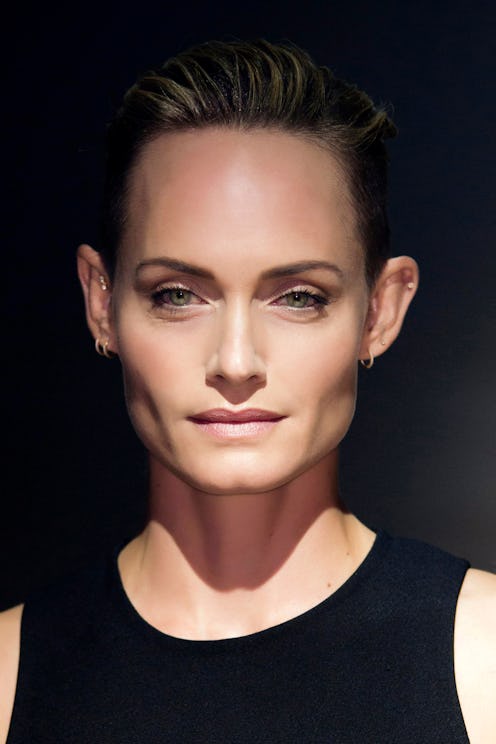(Beauty)
Why You’re Still Getting Cystic Acne Well Past Your Twenties

If you thought that your acne would magically disappear around the same time you graduated high school, think again. Plenty of people still suffer from cystic acne over the age of 40, but don't be dismayed: There are plenty of over-the-counter treatments to try that don't require a visit to your dermatologist.
Read more: How To Treat Fungal Acne On Your Face When Nothing Else Works
While you find yourself gazing at your cystic acne in your magnified mirror, maybe you can take comfort in knowing that over 54 percent of women older than the age of 25 have some form of facial acne, according to a 2002 study from the Journal of American Academy of Dermatology. The root of it? “It's triggered by a combination of genetics, bacterial colonization, some medications, hormonal fluctuations, environmental stresses, and diet,” Dr. Barbara Sturm, MD, an aesthetics doctor and founder of her eponymous skincare line, tells TZR. In mature skin, you’ll notice the formation of comedones, and inflammatory papules and pustules (or breakouts) as well as abscesses. “It’s painful, and it often leads to keloid scarring,” Dr. Sturm says.
These hormonal changes affect oil glands that are deep in the skin, causing them to be overactive and overproduce oil, which then leads to cyst formation, Dr. Tony Nakhla, M.D., a board-certified dermatologist and founder of EIGHTH DAY previously told TZR. Regardless of the causes, the most important thing to remember is not to pick, squeeze, or touch the site of the blemish.
Sadly, minimizing these painful bumps isn't a quick fix — it does take a little time and lots of consistency. Seeing your dermatologist is always an option, as they'll most likely prescribe oral contraceptives or spironolactone to treat your concerns. But according to Dr. Sturm, a healthy skincare regimen helps to solve the problem before it starts and heals the skin after the problems begin by boosting the natural skin barrier function and reducing inflammation triggers and consequences on the skin. To start, eliminate the environment on the skin in which bacteria thrive with an antiseptic. "It's a myth that acne-prone skin needs harsh drying. It needs the opposite — hydration, nutrition, and a gentle soothing of inflammation triggers," she says.
Other treatments should focus on healing acne scars left from the cystic bumps. "The gold standard is isotretinoin. Isotretinoin is an oral retinoid that basically shuts down the oil glands," Dr. Hadley King M.D., F.A.A.D., a clinical instructor of dermatology at the Weill Medical College of Cornell University, explains. If well tolerated, it delivers dramatic and usually long-lasting results.
Ahead see the over the counter options that derms recommend to banish cystic acne.
This article was originally published on